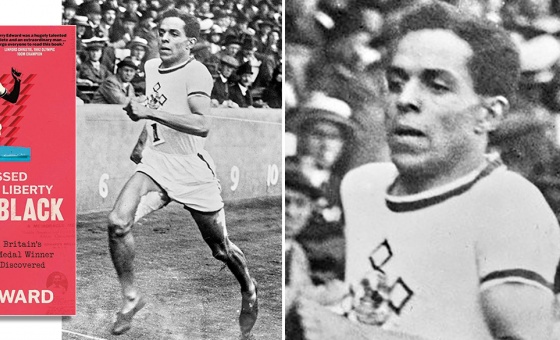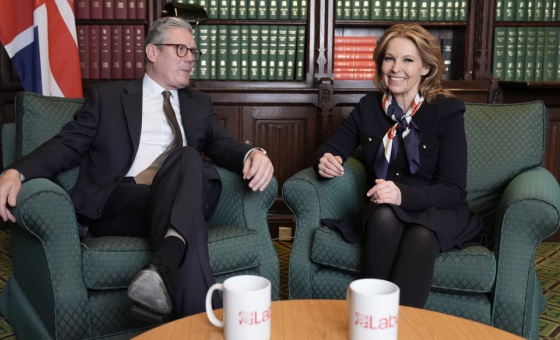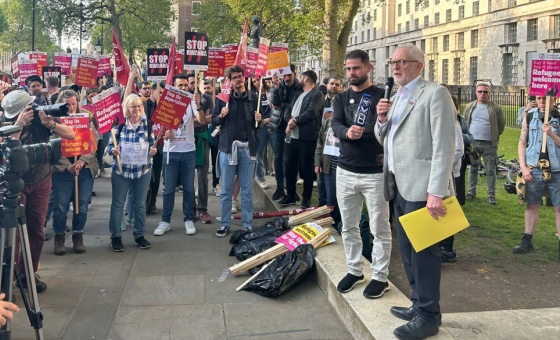This is the last article you can read this month
You can read more article this month
You can read more articles this month
Sorry your limit is up for this month
Reset on:
Please help support the Morning Star by subscribing here
SEVENTY-TWO thousand knives stab the Palestinians’ hearts, expanding that wound of displacement inside them with every day that passes.
May 15 marks the Nakba, when the Israeli gangs fired their bullets towards the unarmed Palestinians, leaving no choice for them but to carry their souls and keys and escape the ghost of death.
No-one can imagine how the Palestinians felt that day. Their pain was unbearable; it was like stripping them of their original identity, their lands, air, sky, crop and sun, and drawing a capital R on their foreheads, branding them as official refugees.
From that catastrophic day till now, the Palestinian immigrants live the same loops of grief. They wake up with a heavy burden on their chest, drink their tea with bitterness, listen to the radio that plays different songs about Palestine with almost the same lyrics, “Palestine will be free,” and sing the Palestinian anthem with sore suffocated voices.
Nakba is painted on the eyes of every Palestinian who witnessed it. Their wrinkled pale faces expose their yearning for those days where everything tuned with the sun and harvest times, where nothing could disturb them, except a bad season that may delay the harvesting of the crops.
Israel tried to wipe every feature of Palestine. It did its best to fabricate the Palestinians’ history and culture, claiming that it has the right to steal them.
I believe as long as living generations know where their home towns were, eventually they will find their way to them.
Nakba is a very deep and open wound, which constantly consumes the Palestinians’ steadfastness.
However, there will always be an inner voice inside every Palestinian to remind them of their right to go home.
This we often remember in a famous quote from a film when a husband told his wife on Nakba day: “Do not take all our stuff, just carry the important things with you. It is a matter of a couple of days, then we will be back.”
Somaia Kamal Abu Nada, 25, is an English teacher and translator from Gaza. She is part of the youth Palestinian writing collective We are Not Numbers (wearenotnumbers.org).












